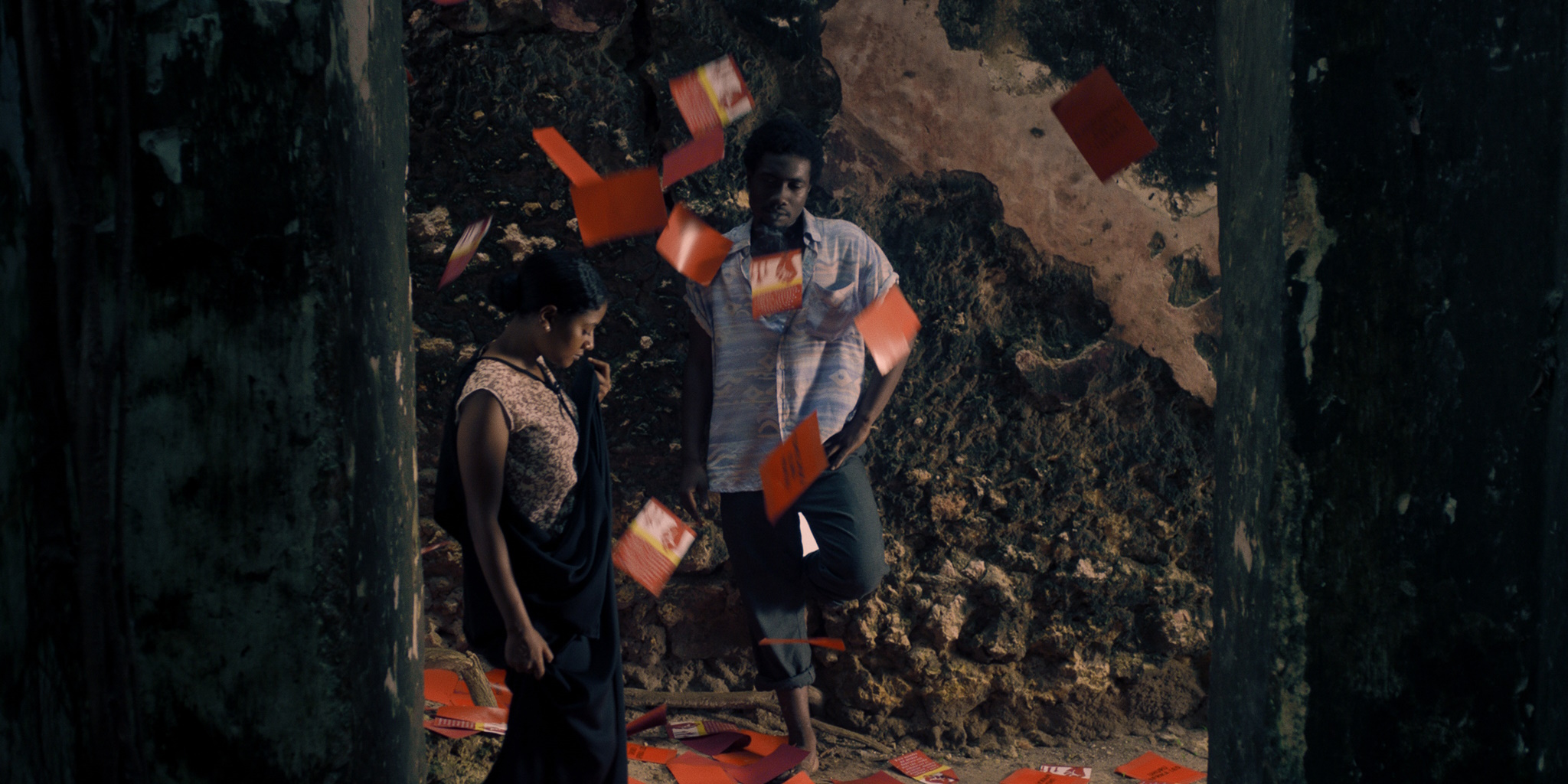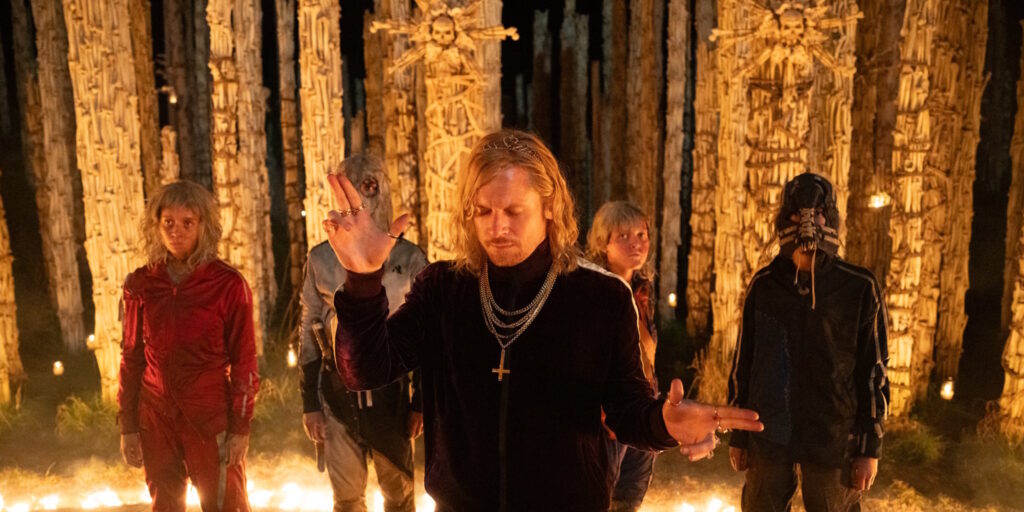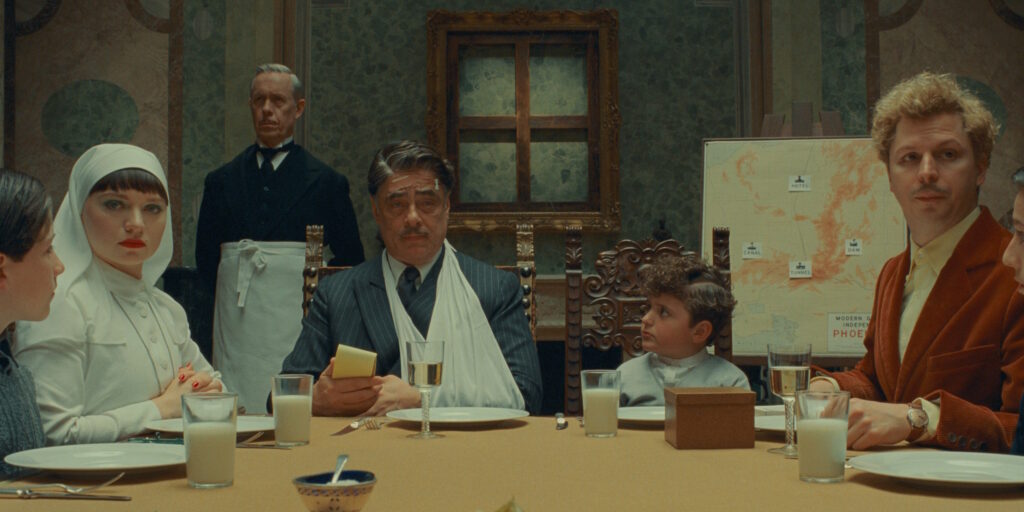The year is 1954. The people of the African archipelago Zanzibar have lived under a protectorate of the British Empire since 1890. Freedom fighters would like to see an end to the stranglehold of Britain’s rule — and they’d like the rest of Zanzibar to bravely band together with them against the Empire’s seemingly limitless global power. However, the rebels are meeting resistance from the authorities and government higher-ups every step of the way, and it’s clear that independence is not going to be easy to accomplish. It’s also clear that if anyone can do it, it is the young and the passionate. Passionate about the cause, passionate for each other, and passionate about their shared vision for a future free from colonialism.
Tug of War thrusts viewers right into the final decade of the Protectorate: Denge (Gudrun Columbus Mwanyika), a staunch Communist embroiled in the freedom-fighter movement, hangs “Free Zanzibar” flyers wherever he can find space for them. Buildings, alleyways, walls: If a sheet of paper can fit there, Denge and his recruits have surely covered it. Yasmin (Ikhlas Gafur Vora), an upper-class Indian-Zanzibari who has been involuntarily married to a man three times her age, is on the run from the privileged life she never wanted. Their eyes meet, and it’s obvious there’s a profound connection between the two.
After Denge and his fellow revolutionaries disrupt a high-class gathering in the name of independence, Yasmin is brought in for questioning. She denies knowing the man, but when they meet up later that evening, it’s clear they share something incredibly deep — deeper than just the pair of them, deeper than even the Free Zanzibar movement. Flashing back just one month earlier, the true extent of the pair’s bond becomes apparent. It’s an illicit, anti-colonialist love affair for the ages. Collectively, against all odds, they’ll work tirelessly to remove their beloved Zanzibar from underneath the thumb of the British Empire.
Serving as Tanzania’s entry for the 95th Academy Awards’ Best International Feature, Tug of War is only the second film from the country to be submitted for consideration in the category. It’s a distinction director Amil Shivji should be proud to brandish. After all, Tug of War is more than just a compelling story told well. The film successfully juggles numerous genres, ranging from coming-of-age to period drama to political thriller to forbidden romance and back again — a risky move that requires precise coordination to pull off convincingly. Shivji nails it, never leaving the audience questioning Denge and Yasmin’s political or romantic intentions, evading the expected tonal whiplash.
For all the great work being done by the nonprofessional stars of Tug of War, cinematographer Zenn van Zyl and editors Nadia ben Rachid and Matthew Swanepoel are just as worthy of note. This trio is precisely the crew Shivji needed behind the camera. As a unit, they make magic happen: ben Rachid and Swanepoel assemble conversations experimentally, layering dialogue over van Zyl’s swooning slow-motion shots. Vibrant stylistic choices, to be sure, but not so showy that they end up distracting from plotting or performances. Balance is the key word. Contrary to what the title suggests, no one element in Tug of War is ever forcefully pulling viewers in one direction or another. Which isn’t to say that the film is not profoundly moving, however: It’s exactly the kind of deeply, radically anti-imperialist narrative that is impossible to find in the Western studio system today.
Tug of War screens Saturday, Mar. 25 at 7 p.m. at Washington University’s Brown Hall, Room 100. Admission is free. The feature will be preceded by a screening of the short film “La Star” and followed by a post-show discussion with director Amil Shivji, moderated by filmmaker Ekwa Msangi.
The 2023 African Film Festival runs Mar. 24-26. More information, including a complete schedule of events, is available here.




